- Home
- Noelle Adams
Bay Song Page 2
Bay Song Read online
Page 2
If she stayed still, he would probably never know she was here.
She watched him as he got closer. She couldn’t really tell how old he was—probably in his thirties. He was very nice-looking with a lean, fit body, long limbs, and tanned skin. His hair was brown and wet with his perspiration. He must have been running a long time.
Holly felt the strangest sense of envy as she watched him. He looked so strong—like no one could ever hurt him. She would love to be so strong.
She might be in good shape when she wasn’t damaged by broken boards, but her own body was very small.
This man could fight back if anyone attacked him. He had a very handsome face too with a broad forehead and square jaw. Nature had been kind to him.
She gasped when she heard a voice call out from across the street, but then she realized it was calling to the running man. He stopped next to the trees she was hiding in.
A gray-haired couple across the street had called out the greeting to him. He was so close to her now that she could have touched him if she’d just taken one or two steps out from behind the trees.
“Hey there,” he called out to the couple. “Good to see you.” His shirt was plastered to his back, and Holly felt very strange as she looked at it, something about the stark physicality of his appearance so close to her quite unsettling.
When she was a teenager and living in Maryland, she’d gone out with boys a lot. They’d always liked her, and it felt like something she was supposed to do as she was pretending to be normal, like all the other girls her age.
But that was a long time ago. She hadn’t been close to a man in six years, ever since her mother had left.
“Are you in town for long?” the old man asked across the street.
“I’m not sure yet.” The running man sounded breathless for obvious reasons. She got the distinct feeling that he didn’t want to be having this conversation.
“I guess you’ve gotten too big and important for us,” the older man said in a broadly teasing tone.
Because Holly was watching so closely, she saw the younger man’s shoulders tense up. “Never,” he said in a friendly tone.
She was quite sure he didn’t mean it.
“Well, maybe we’ll see you around. Say hello to your mama for us!”
“Will do,” the man said, evidently taking that as a cue that he was allowed to end the conversation. He started to jog again, and Holly watched as he continued down the block beneath a canopy of half-blooming crape myrtles.
She wondered for a moment why he was so uptight about a casual conversation since he didn’t appear to have any problems with people the way she did, and then she wondered why she was even wondering.
It didn’t matter. She wouldn’t waste her energy thinking about it.
Right now she had to go to the hardware store, and then she had to go to the drugstore.
The drugstore was the worst. It was always crowded. But she needed the stuff to doctor her cuts. If it was too crowded, she would just skip the cheeseburger.
She felt strangely unsettled, so she decided she had better find a quiet place to relax before she attempted to brave her other errands.
Two
William C. Chesterton, known to all his friends and acquaintances as Cade, was dripping with sweat from his run as he sat on a stool at his mother’s kitchen counter.
He swallowed a long swig of water and tried to cool down.
The kitchen was hot since his mother had been baking loaves of bread for several hours. All his life, for as far back as he could remember, this kitchen had felt the same way. She baked every morning, except Sundays, holidays, and days she was sick.
He watched as she bent over to pull a fresh loaf from the oven. To his relief, it was her last loaf of the morning, and after she set the bread down to cool, she switched the oven off. She’d had him in her midthirties, and she would be turning seventy next April. Her hair was steel gray now, still pinned up in the same knot at the nape of her neck she’d worn all his life. Her knees were bad, and she had a bum shoulder, so she couldn’t get around like she used to. It didn’t stop her from her daily baking though.
Without turning around, she said, “Are you planning to write today?”
He tried not to sigh too loudly. It felt like they’d had variations on this conversation a thousand times since he’d arrived back in Cape Charles for a visit two weeks ago. He was used to being completely independent, and having someone hold him accountable was rather frustrating—even if that person was his own mother. “No. I don’t have anything to write at the moment.”
“Then what are you going to turn in to your publisher at the end of the year?”
“I told you the other day. I’m still sorting through ideas.”
“That doesn’t leave you much time to research and write the book. I thought your last book took you six months just to research.”
It had taken longer than that. Two years ago, he’d stumbled on a little-known series of murders of migrant workers in Arizona. Law enforcement had still been investigating when he’d come across it, so he’d stuck around. He’d followed the case through to the final arrest before he’d finished the book, and he’d thought for sure it was his best since he’d been on the spot as it happened, and so his research and experiences with the crimes and criminal were so much deeper and fresher.
The book had been released last month—to tepid reviews and middling sales. He’d stopped checking reviews and best-seller lists two weeks ago when it was clear the book was a flop.
Six years ago, his first true-crime release about a serial rapist in Fall River, Massachusetts had stayed on the best-seller lists for seven months, but those days were evidently over.
“I’ll get it done,” he told his mother. He hoped he would get the book done, although at this point it was going to have to be a rush job. He had one more book under contract with his publisher, and it was due December 31. He could ask for an extension if he needed one. They were disappointed with him about this latest book anyway, so he couldn’t imagine they were in a hurry to get another manuscript.
“I checked the paper this morning,” his mother said, turning around and leaning on the kitchen island the way she often did to relieve the pressure on her knees.
“I told you to stop checking.”
“I know. But I still hope your book might start selling. Some books don’t do well right away but do better later, right?”
She was his mother. She believed in him, and so she kept hoping for the best. Because he knew this, he managed to keep his voice gentle, even though this was the last conversation he wanted to be having. “Some do but not in my situation. If this book was going to do well, it would have done so from the beginning.”
“I don’t understand why people don’t want to read this book. You know I can’t read all the gory stuff, but isn’t it as good as your first couple of books?”
“Yes. It’s as good. It’s better, I think.”
“Then why don’t people want to read it?” Her face was more wrinkled every time he saw her, and at the moment, it was twisted in concern.
Cade felt sick. Physically ill. He couldn’t stand for his mother—for anyone—to be disappointed in him, not when he’d spent his entire life trying to make himself a success. He suddenly wanted a beer—or maybe six of them—even though it was just eleven o’clock in the morning. “I don’t know, Mom. I don’t know.”
She must have heard something in his voice because her tone was much gentler when she said, “Well, your next one will do better, I’m sure.”
“Maybe.”
“And if it’s not, you’ll write another book. They don’t all have to be big hits.”
He felt like snapping back a response, but he held it in. He tried not to be rude to his mother, no matter how prickly he felt about this subject.
His mother added, “You know none of your books have to be hits. We love you here just the same.”
He shifted on his stool,
trying to push down his discomfort over this conversation.
His mother watched him for a minute and then sighed heavily. “Oh, Cade. Sometimes I think you’re still that bookish little boy, trying desperately to get people to respect you.”
He didn’t like that idea. At all. In fact, he raised his chin and clenched his teeth. But he still didn’t respond since he couldn’t think of anything to say that would take away the power of this conversation.
He’d been a geeky little boy all through elementary and middle school—smaller than most of his classmates, quiet, only good at reading and writing and memorizing facts. He’d been the butt of jokes and the victim of bullies. He’d had almost no friends and had spent his time imagining a world that was different, making up scenarios where he’d accomplish something noteworthy or admirable, something that would change the world’s opinion of him.
Then he’d finally hit a growth spurt at fifteen, and he’d spent an entire summer working out and practicing soccer. He’d made the high school team. Since soccer was the only sport his high school had done well at, his entire life had changed. He’d had friends for the first time. Girls had been interested in him. Slowly he’d become more and more popular. No one remembered the geeky boy he’d been before.
No one but him and his mother and a few other people in this town.
She wasn’t entirely wrong that he was still trying to prove himself—but he figured everyone had issues like that. It didn’t matter that much.
What did matter was his most recent book was a flop, and if he didn’t turn things around with this new book, his entire career would be a failure.
His mother’s voice broke through this depressing recognition. “I’m supposed to bring Roy back his drill today. I borrowed it to work on the porch.”
Cade’s shoulders stiffened. “Why were you working on the porch?”
“Some of the wood is rotting, and it needed replacing.”
“Why didn’t you ask me to help you?” His mother was almost seventy. She didn’t need to be doing manual labor. She’d worked on this old house as long as he’d known her. Her parents had owned the mint-green Victorian on Franklin St., and she’d inherited it from them when they died. She loved this old place, and she loved the town.
Cape Charles had been a prosperous railroad town a hundred years ago, and it had still been going strong when his mother was born. Once the passenger trains had stopped coming through, though, the town and its economy went downhill. Only when the town had started investing in tourism—with charming shops, restaurants, and B&Bs and a well-tended beach and fishing pier—had it started to thrive again. His mother had lived through both the highs and the lows, and Cade knew nothing would ever drag her away from the town.
“You were on the boat.”
“If you’d told me you needed help, I would have stayed home.”
“I didn’t need your help. I took care of it.”
He wanted to groan. “Next time let me know.”
“Nothing else needs doing right now.” She looked innocent, as if it was perfectly normal for a sixty-nine-year-old woman to let her fit and capable son lie around while she worked with a power drill. “Anyway, would you mind dropping it off to Roy sometime today?”
Roy was her younger brother—Cade’s uncle.
“I’d be happy to,” he said, still giving her a narrow-eyed look to let her know he wasn’t happy about her not telling him she needed help. “Is he at the grill today?”
“Yes. He should be there until five.”
“I can go over as soon as I shower and dress. Do you need anything while I’m out?”
“We’re almost out of dishwashing detergent, so pick some up from the drugstore while you’re there, will you?”
“Of course.” He stood up, his shirt and shorts still sticking to his skin.
“Take the golf cart.”
He’d been about to leave the kitchen, but he turned back at her words. “I hate that thing. Why shouldn’t I drive?”
“Because it’s Labor Day weekend and the town is crowded. We don’t need your gigantic vehicle taking up the whole road. It’s bad enough parked out on the street like it is.”
Cade made a low growl of impatience as he left the room, but he didn’t argue.
His “gigantic vehicle” was a black Escalade. The streets of Cape Charles were narrow but certainly not too narrow to drive an SUV. He despised driving the golf cart around town, although they were widely used by both residents and vacationers.
Driving the golf cart made him feel like a kid or an old man—neither of which he was.
If his next book didn’t do well, though, he might have to retire at thirty-five or else get an entirely different kind of job. He’d have to move out of Manhattan, one way or the other. He had enough in savings to make it there through next year, but his lifestyle was too expensive if he didn’t have another major success.
He’d have to come home defeated. He might as well be that little boy again.
As long as Cade had known him, his Uncle Roy had worked at the grill in the town drugstore, which was still hanging on without being eaten up by a national chain. The place was set up like an old-fashioned general store and soda fountain, with vintage stools up at a bar in front of the grill and a line of several hard booths.
The shop was popular—mostly with tourists—although town residents stopped there for burgers or milkshakes fairly often as well.
All the booths and barstools were full when Cade walked in a half hour later. The senile woman with bright red hair who always manned the corner booth was in her normal position, paging through the local newspaper. His uncle was busy flipping burgers, so Cade stood next to the bar, waiting until he could get his attention.
“Cade,” a voice came from a couple of barstools down. “How are you, young man?”
Cade glanced over to see old Mr. Redding, whom he’d known since he was five. The man had been old as long as he could remember. He must be ancient now. “I’m fine, sir,” he said. “How are you?”
“Hangin’ in there. Still a famous writer, are you? Living in the big city?”
Cade hated—hated—questions like that and everything they implied. “I’m doing my best.”
“When are you going to settle down with a pretty wife?”
He hated those questions too. “Haven’t found the right girl yet.”
Mr. Redding chuckled, his wrinkled face quivering with his amusement. “I bet you’ve found her and didn’t notice her.”
Cade was saved from having to respond to that comment because his Uncle Roy had seen him and came over. “What’re you up to, boy? I thought you’d be out on the boat again.”
Cade had spent the past week out on his boat most of the day, fishing and sitting in the sun and trying to forget his worries.
“Not today. Mom asked me to bring by your drill. I can leave it in your trunk if you want.”
“Sounds good.” Roy dug into his pocket for his keys and handed them across the bar. “Don’t mess with any of the other stuff in there.”
Cade assured him he wouldn’t and then walked outside to find Roy’s forty-year-old Oldsmobile. Upon opening the trunk, Cade discovered that the “other stuff” he shouldn’t be messing with consisted with a lot of old newspapers, some fast-food wrappers, and a ridiculous number of empty glass soda bottles.
Chuckling, Cade put the drill in the trunk and slammed it shut.
As he walked back toward the front door, he noticed a girl on an old bicycle riding up. He didn’t get a good look at her since she was out of sight behind the corner of the building before he could see her very well, but he did see that the bicycle was ancient.
His Uncle Roy would probably appreciate it.
The stool next to Mr. Redding was empty when he returned, so Cade took it, waiting until his uncle was free again to hand back the keys.
As he waited, he looked around idly.
Mostly tourists in here today. One family with noisy kid
s. One young couple who must have insanely chosen Cape Charles as a romantic destination. Several older couples who probably came to town to golf.
When he heard the front door of the shop open, he turned his head and saw a young woman enter. She must belong to that ancient bicycle.
On first glance, he’d thought she might be a teenager, but he could see now that he’d been wrong. Her hair was long and worn in two long, blond braids, but she was definitely grown up.
She wore a strange, shapeless dress and sandals, and her attire was so different from most women’s that he kept looking. She was pretty, he noticed, in a very natural way. No makeup at all. She had long, tanned legs, which were definitely worth a second look, but he couldn’t tell about the rest of her body because of that old-fashioned dress.
Maybe she was one of those religious types who didn’t believe in modern vanities like haircuts and cars. Her skirt was too short for that though.
Because he was bored and she was unusual, he watched her as she gave the store a rapid once-over and then ducked her head as she hurried to a shelf in the far corner where the Band-Aids and arthritis cream was kept.
She got what she needed quickly—first aid supplies, he thought—and then was making her way to the cashier when an old woman started walking up the aisle from the opposite direction.
There was plenty of room for both of them to pass, but the girl darted into a side aisle and waited, her head down, before the old woman walked past. Then she walked even more quickly up to the cashier.
The cashier was Bill—a friendly, middle-aged black man who’d worked here for ten years. But Bill didn’t give the girl his normal greeting. He just quietly rung up her purchases and handed her the bag.
More intrigued than ever, Cade was surprised when the young woman didn’t leave the store. Instead, she walked over to the grill and soda fountain.
He had to make his staring a little less obvious now since she was standing only a few feet away.
She was very pretty, he could see now—with big eyes, full lips, and smooth skin. But she seemed so strangely skittish, like a deer that would run at the slightest start.

 In Want of a Wife
In Want of a Wife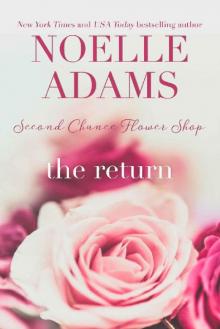 The Return (Second Chance Flower Shop Book 1)
The Return (Second Chance Flower Shop Book 1) Second Best, #1
Second Best, #1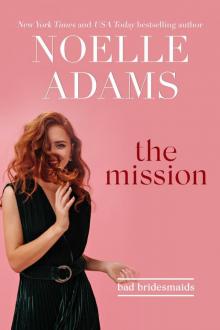 The Mission
The Mission Temp
Temp The Return
The Return Stranded in the Woods
Stranded in the Woods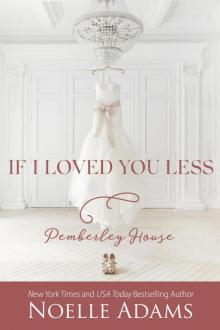 If I Loved You Less
If I Loved You Less Single Dad
Single Dad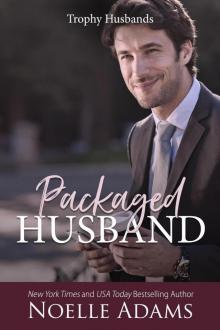 Packaged Husband (Trophy Husbands, #3)
Packaged Husband (Trophy Husbands, #3) Stranded in the Woods (Holiday Acres Book 3)
Stranded in the Woods (Holiday Acres Book 3)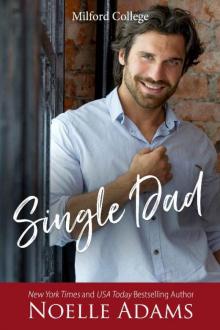 Single Dad (Milford College Book 3)
Single Dad (Milford College Book 3) The Rebound
The Rebound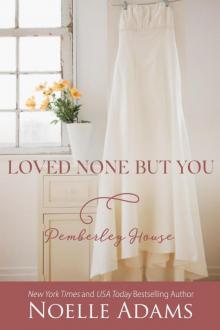 Loved None But You (Pemberley House, #3)
Loved None But You (Pemberley House, #3) Living with Her Fake Fiancé (The Loft Book 3)
Living with Her Fake Fiancé (The Loft Book 3) Stranded in the Snow
Stranded in the Snow The Reunion (Second Chance Flower Shop Book 3)
The Reunion (Second Chance Flower Shop Book 3) Secret Santa (Milford College Book 4)
Secret Santa (Milford College Book 4) Stranded on the Beach
Stranded on the Beach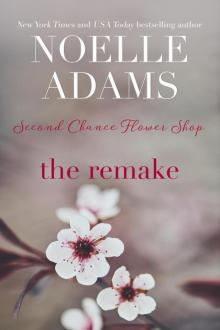 The Remake
The Remake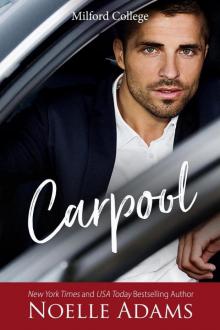 Carpool (Milford College, #1)
Carpool (Milford College, #1) Secret Santa
Secret Santa Christmas Bride (Convenient Marriages Book 5)
Christmas Bride (Convenient Marriages Book 5)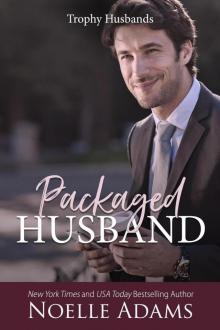 Packaged Husband
Packaged Husband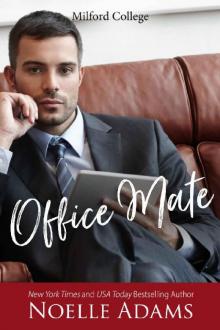 Office Mate (Milford College Book 2)
Office Mate (Milford College Book 2)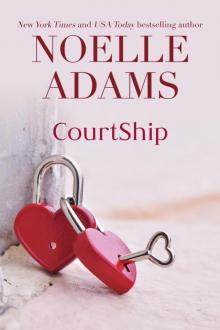 CourtShip
CourtShip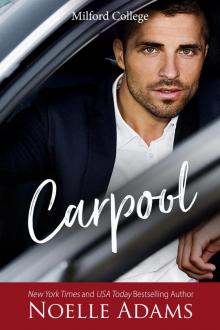 Carpool
Carpool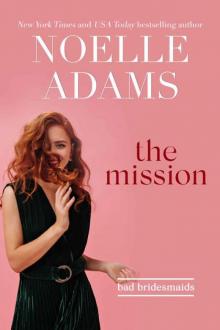 The Mission (Bad Bridesmaids Book 2)
The Mission (Bad Bridesmaids Book 2) Third Life
Third Life Christmas Bride
Christmas Bride Living with Her Ex-Boyfriend (The Loft Book 2)
Living with Her Ex-Boyfriend (The Loft Book 2) Christmas with a Prince
Christmas with a Prince The Rebound (Second Chance Flower Shop Book 2)
The Rebound (Second Chance Flower Shop Book 2) Wrong Wedding
Wrong Wedding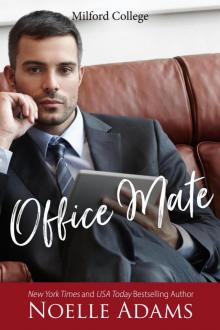 Office Mate
Office Mate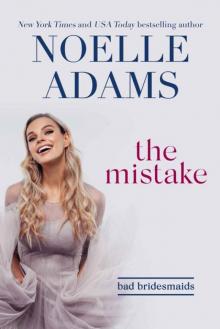 The Mistake (Bad Bridesmaids Book 1)
The Mistake (Bad Bridesmaids Book 1) Stranded for Christmas
Stranded for Christmas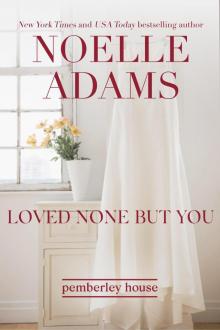 Loved None But You
Loved None But You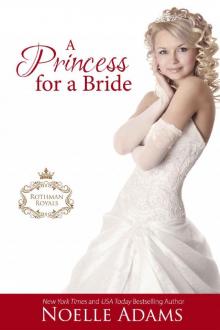 A Princess for a Bride (Rothman Royals Book 2)
A Princess for a Bride (Rothman Royals Book 2) Untouched (One Fairy Tale Wedding, #2)
Untouched (One Fairy Tale Wedding, #2) Retreat
Retreat Just Friends: Two Friends-to-Lovers Stories
Just Friends: Two Friends-to-Lovers Stories One Night in the Ice Storm
One Night in the Ice Storm Temp (Milford College Book 5)
Temp (Milford College Book 5) Living with Her Ex-Boyfriend
Living with Her Ex-Boyfriend Holiday Heat
Holiday Heat Falling for her Brother's Best Friend (Tea for Two Book 1)
Falling for her Brother's Best Friend (Tea for Two Book 1) Intimate
Intimate Married for Christmas (Willow Park)
Married for Christmas (Willow Park) Bittersweet
Bittersweet Untouched
Untouched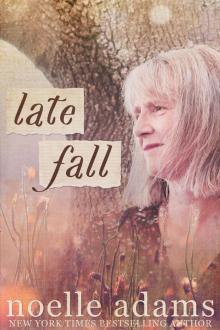 Late Fall
Late Fall Unveiled (One Fairy Tale Wedding Book 3)
Unveiled (One Fairy Tale Wedding Book 3)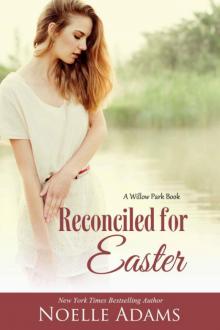 Reconciled for Easter
Reconciled for Easter Her Reluctant Billionaire
Her Reluctant Billionaire Salvation
Salvation Seducing the Enemy (Entangled Indulgence)
Seducing the Enemy (Entangled Indulgence)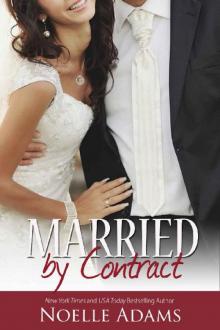 Married by Contract
Married by Contract Royally Wed: a Romance Duet
Royally Wed: a Romance Duet Seducing Her Brother's Best Friend (Tea for Two Book 3)
Seducing Her Brother's Best Friend (Tea for Two Book 3)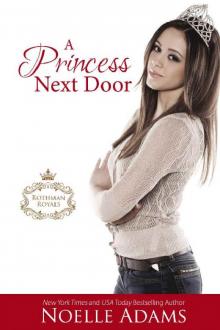 A Princess Next Door (Rothman Royals Book 1)
A Princess Next Door (Rothman Royals Book 1) Winning her Brother's Best Friend (Tea for Two, #2)
Winning her Brother's Best Friend (Tea for Two, #2) Playing the Playboy
Playing the Playboy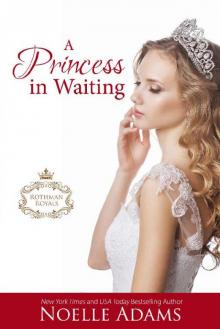 A Princess in Waiting (Rothman Royals Book 3)
A Princess in Waiting (Rothman Royals Book 3) Stranded for Christmas (Holiday Acres Book 4)
Stranded for Christmas (Holiday Acres Book 4) Loving the Bodyguard
Loving the Bodyguard Stranded on the Beach (Holiday Acres Book 1)
Stranded on the Beach (Holiday Acres Book 1) Chasing Jane
Chasing Jane Love for the Holidays (five book Christmas bundle)
Love for the Holidays (five book Christmas bundle) Listed: Volume V
Listed: Volume V A Family for Christmas (Willow Park #3)
A Family for Christmas (Willow Park #3) Listed: Volumes I-VI
Listed: Volumes I-VI Trophy Wife
Trophy Wife A Negotiated Marriage
A Negotiated Marriage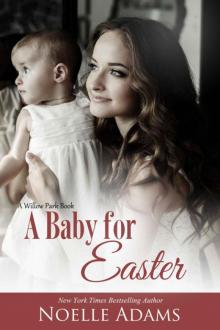 A Baby for Easter
A Baby for Easter Home for Christmas (Willow Park #5)
Home for Christmas (Willow Park #5) Unguarded (One Fairy Tale Wedding, #1)
Unguarded (One Fairy Tale Wedding, #1)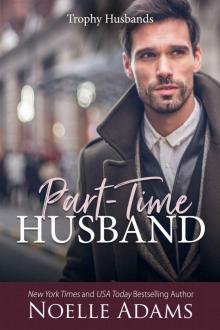 Part-Time Husband
Part-Time Husband Seducing Her Brother's Best Friend
Seducing Her Brother's Best Friend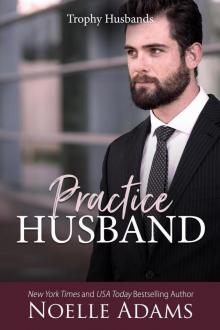 Practice Husband
Practice Husband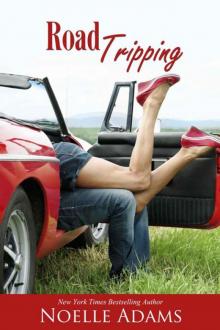 Road Tripping
Road Tripping Accidental Bride (Beaufort Brides #3)
Accidental Bride (Beaufort Brides #3) Retreat (Balm in Gilead Book 3)
Retreat (Balm in Gilead Book 3) Seducing the Enemy
Seducing the Enemy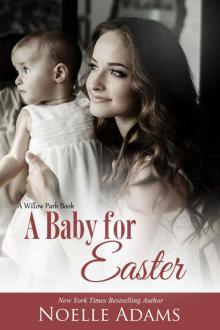 A Baby for Easter (Willow Park)
A Baby for Easter (Willow Park) One Night with her Bodyguard
One Night with her Bodyguard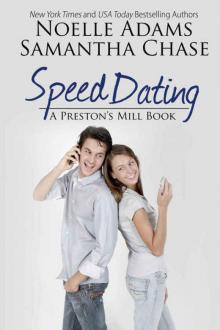 Speed Dating (Preston's Mill Book 2)
Speed Dating (Preston's Mill Book 2) Living with Her Ex-Boyfriend (The Loft #2)
Living with Her Ex-Boyfriend (The Loft #2) CourtShip (Best Friends Book 1)
CourtShip (Best Friends Book 1) Complicating (Preston's Mill Book 3)
Complicating (Preston's Mill Book 3) One Week With Her Husband (Eden Manor Book 3)
One Week With Her Husband (Eden Manor Book 3) One Night with her Boss
One Night with her Boss Excavated
Excavated One Night with her Best Friend
One Night with her Best Friend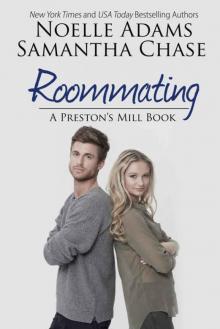 Roommating (Preston's Mill #1)
Roommating (Preston's Mill #1)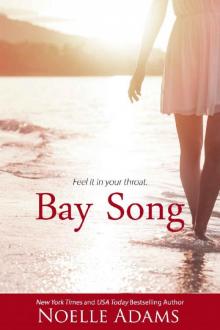 Bay Song
Bay Song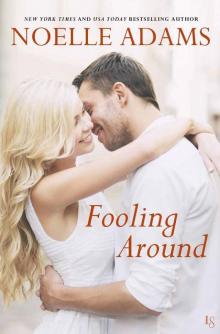 Fooling Around
Fooling Around Stripping the Billionaire
Stripping the Billionaire Revival
Revival Loving the CEO (bundle of five romance novels)
Loving the CEO (bundle of five romance novels) Christmas at Eden Manor
Christmas at Eden Manor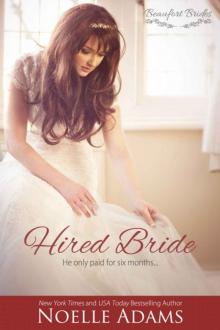 Hired Bride
Hired Bride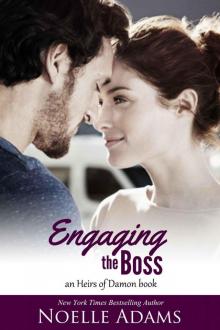 Engaging the Boss (Heirs of Damon)
Engaging the Boss (Heirs of Damon)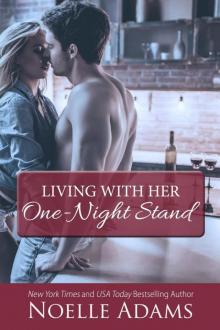 Living with Her One-Night Stand (The Loft, #1)
Living with Her One-Night Stand (The Loft, #1)